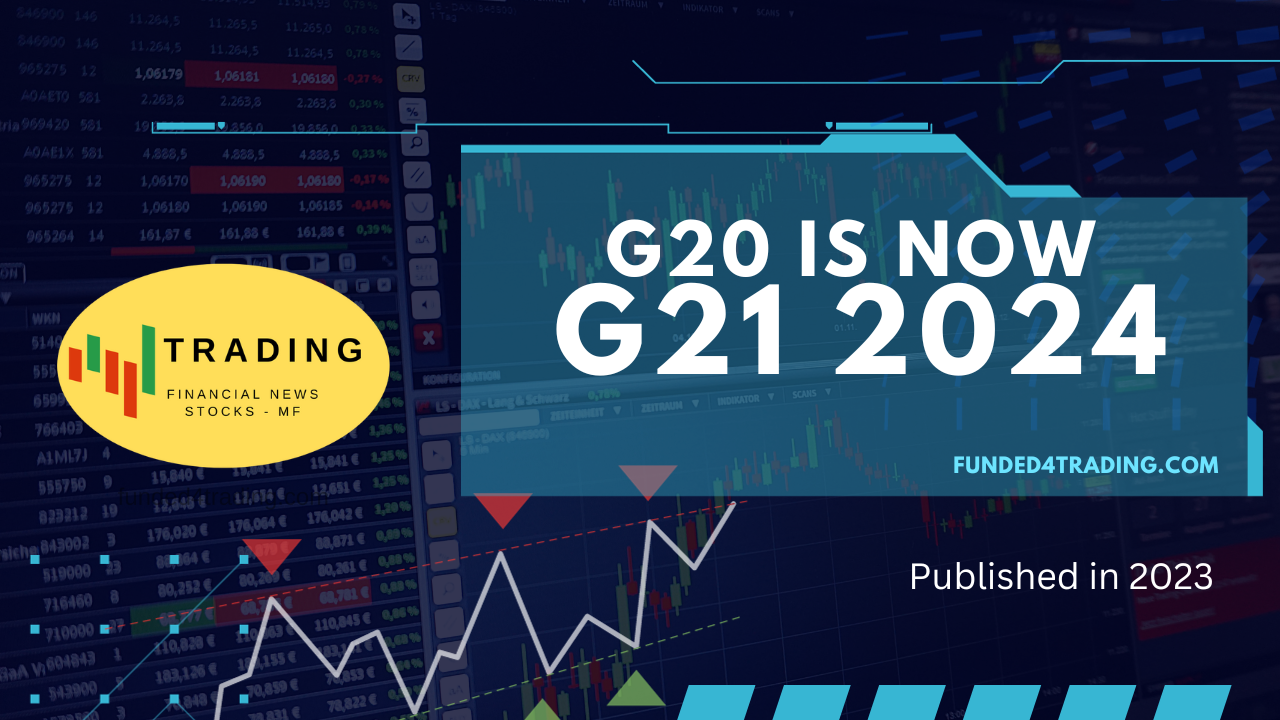G20 is now G21: A Historic Expansion with the Inclusion of the African Union
The G20 summit, the most prestigious congregation of the world’s major economies, has undergone its first expansion since its inception in 1999. As the curtains rose on the G20 summit in New Delhi, Indian Prime Minister Narendra Modi marked the occasion by welcoming the African Union (AU) as a permanent member of the group.
Tweet from [@GlobalEconWatch]: “A monumental change in the global economic structure. The African Union now sits alongside the G20 heavyweights. A game-changer for global collaboration. #G21 #GlobalSummit”
Stirring the political cauldron, Modi’s nameplate read ‘Bharat’, the Sanskrit term for India, rather than the common English term. Furthermore, the G20 official dinner invitation was sent on behalf of the ‘President of Bharat’, further fuelling the debates.
The summit witnessed the absence of significant leaders from Mexico, Spain, Russia, and China, amounting to nearly a fifth of the G20 leadership. Despite their absence, the event’s inauguration was undeniably impressive. A highlight was when the leaders disembarked from their vehicles, taking a brief stroll against the magnificent backdrop of the Konark Temple Wheel, with Modi welcoming them warmly.
Tweet from [@DiplomaticDose]: “G20 or G21, the stage is set. Notable absences, but a historical addition. African Union’s inclusion is a testament to changing global dynamics. #G21 #AfricanUnionInG20”
In his opening remarks, Modi confirmed the agreement on India’s proposal to grant the African Union permanent membership. External affairs minister S. Jaishankar then led the AU’s current chair, President Azali Assoumani of Comoros, to the table. The warm embrace shared between Modi and Assoumani was met with resounding applause, a symbolic gesture underscoring the significance of the union.
India, in its G20 presidency, has hailed the inclusion of the African Union as its crowning achievement, particularly amidst uncertainties over the summit’s concluding joint communique due to the deep-seated divisions over the ongoing Ukraine war.
The G20’s creation aimed to diversify the G7 platform in light of the Asian Economic Crisis. With the European Union already a G7 member, it became an automatic part of the G20 and remained the only regional group at the table until now.
Tweet from [@AfricanDiasporaNews]: “The African Union’s inclusion in the G20 is not just a seat at the table; it’s a voice, a representation, and a pivotal moment for Africa. #AfricanPride #G21”
Senegal’s President Macky Sall was instrumental in advocating for the African Union’s inclusion, a motion that later received China’s endorsement. Support from last year’s G20 chair, Indonesia, and major powers like the US, Japan, France, Germany, and India only solidified the proposal. Modi’s outreach to his G20 counterparts earlier this year further bolstered the union’s case.
As major global powers are keen on strengthening ties with the world’s largest regional bloc, the inclusion of the African Union is hardly surprising. While there were concerns that such a move might prompt other regional groups to demand G20 entry, these concerns were put to rest as the proposal rapidly gained traction.
Tweet from [@WorldAffairsToday]: “India, in its G20 presidency, strikes a significant chord, recognizing the importance and potential of the African continent. #G21 #NewDelhiSummit”
In conclusion, the transformation of the G20 to G21 is more than just a numerical change. It represents a global shift towards more inclusivity, recognizing the importance and potential of regions that had previously been on the periphery of such critical dialogues. The African Union’s inclusion signifies hope, collaboration, and the dawn of a new era in global cooperation.

